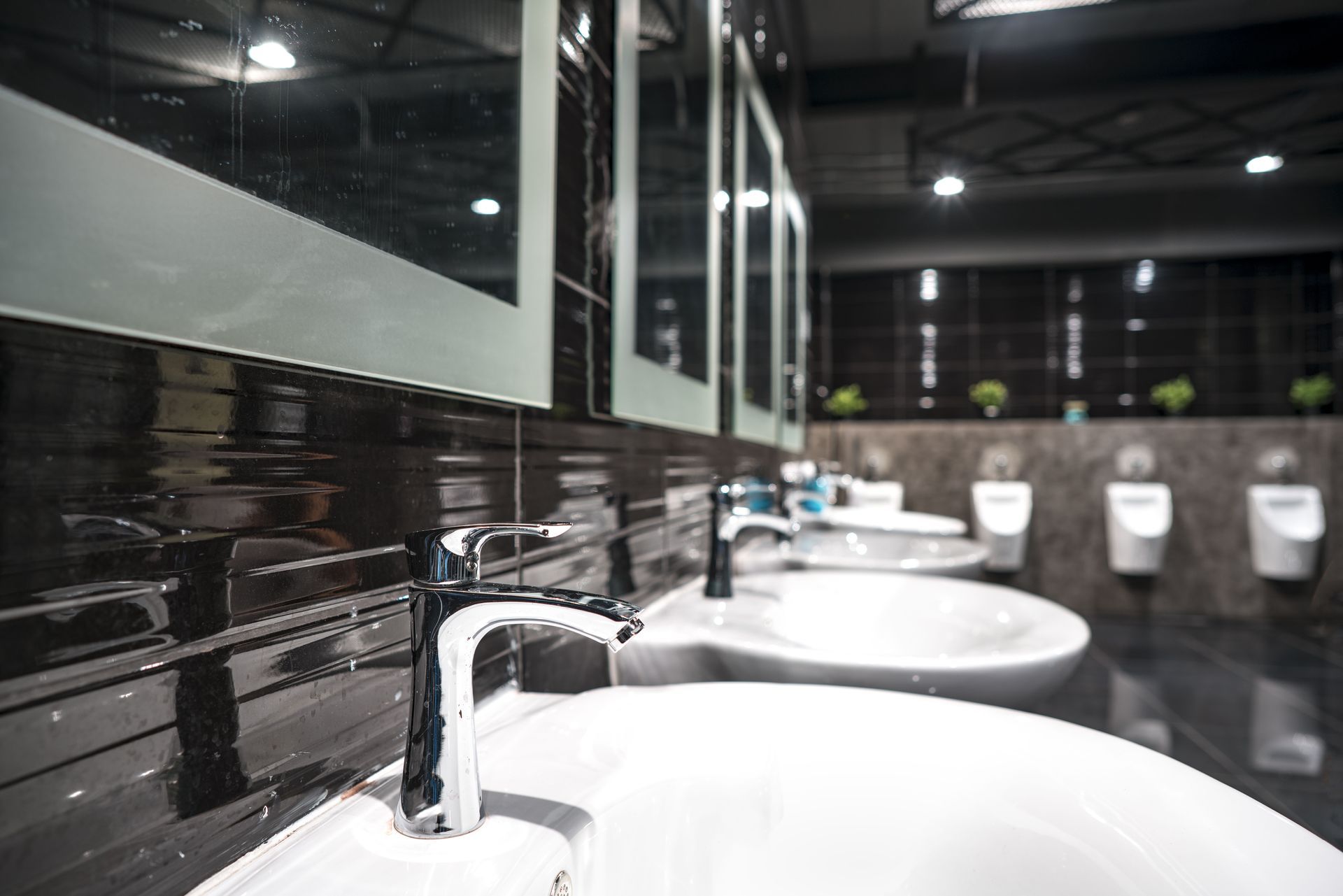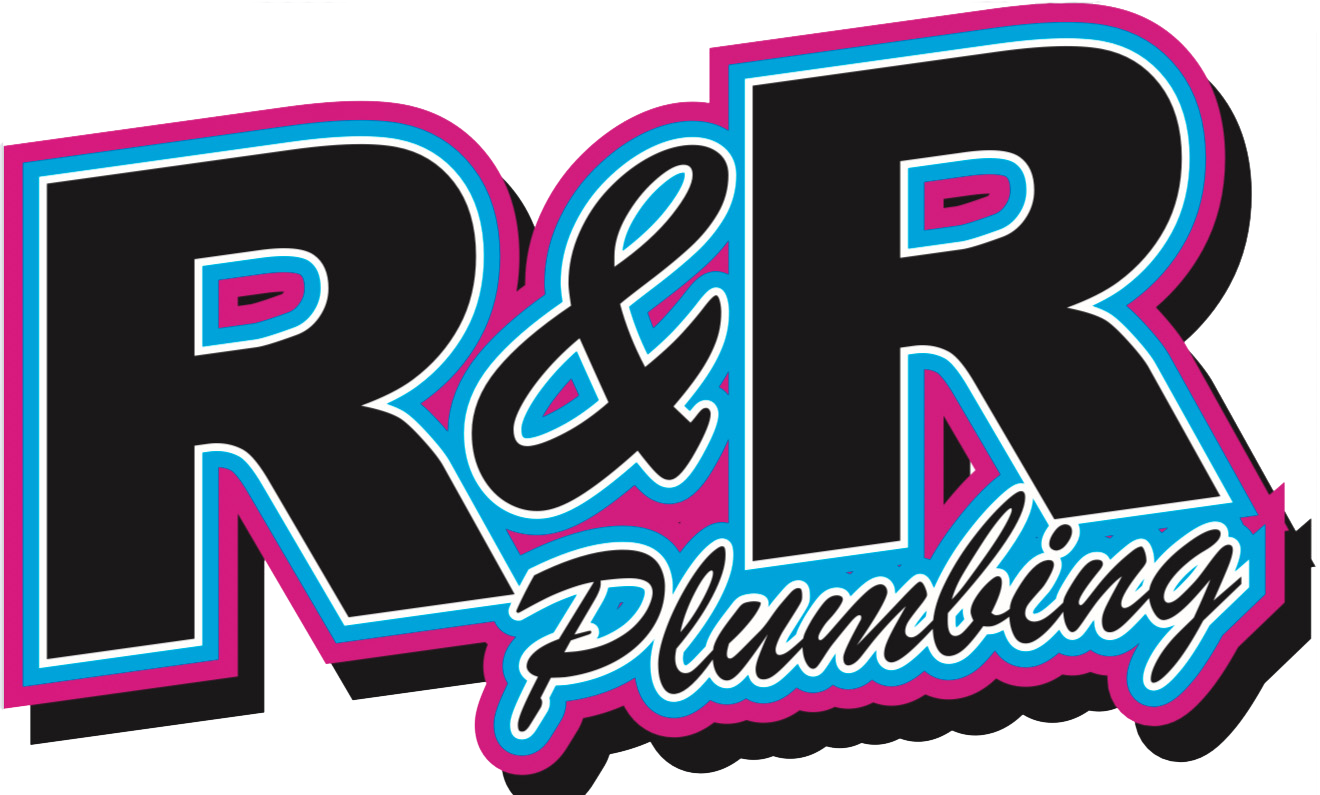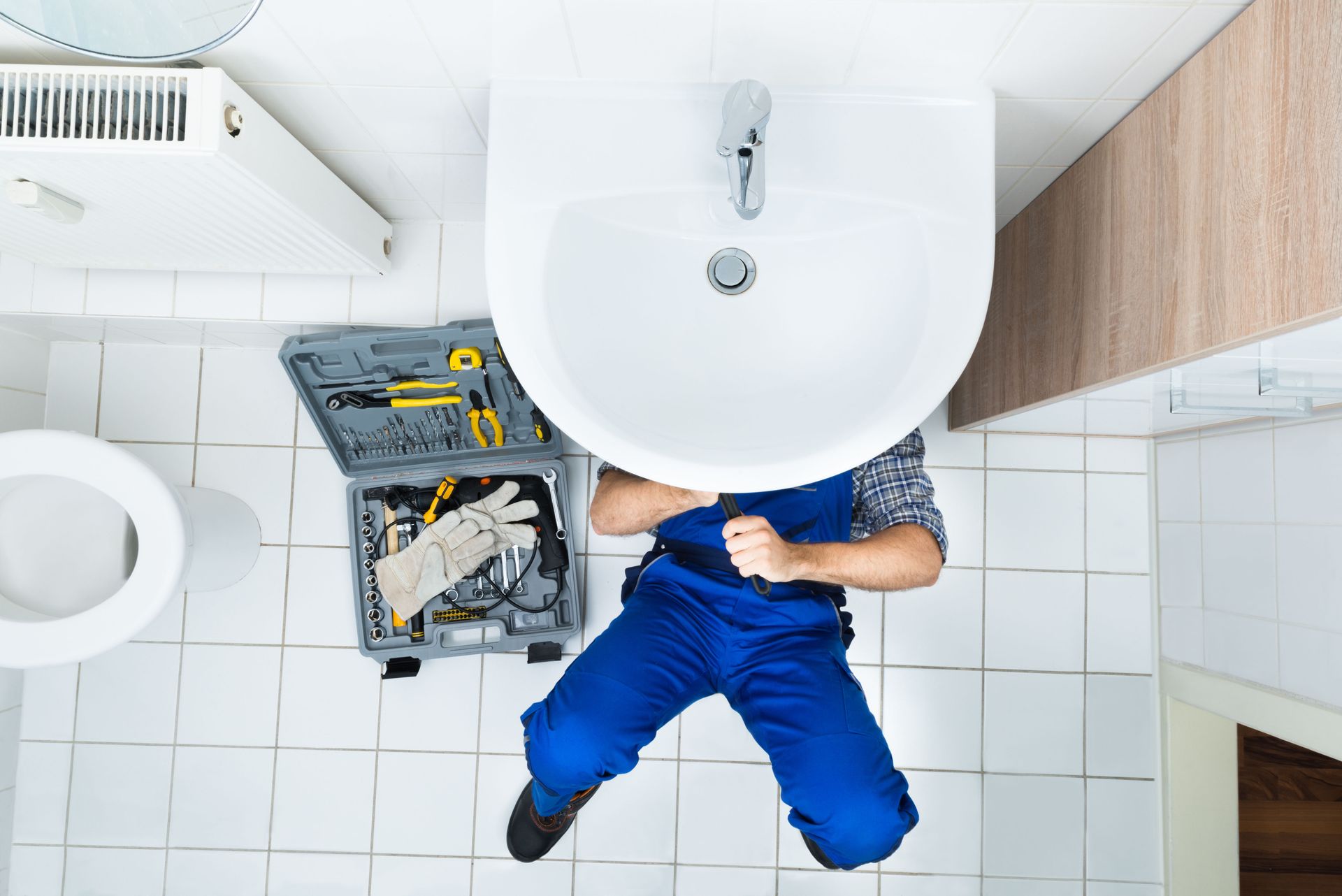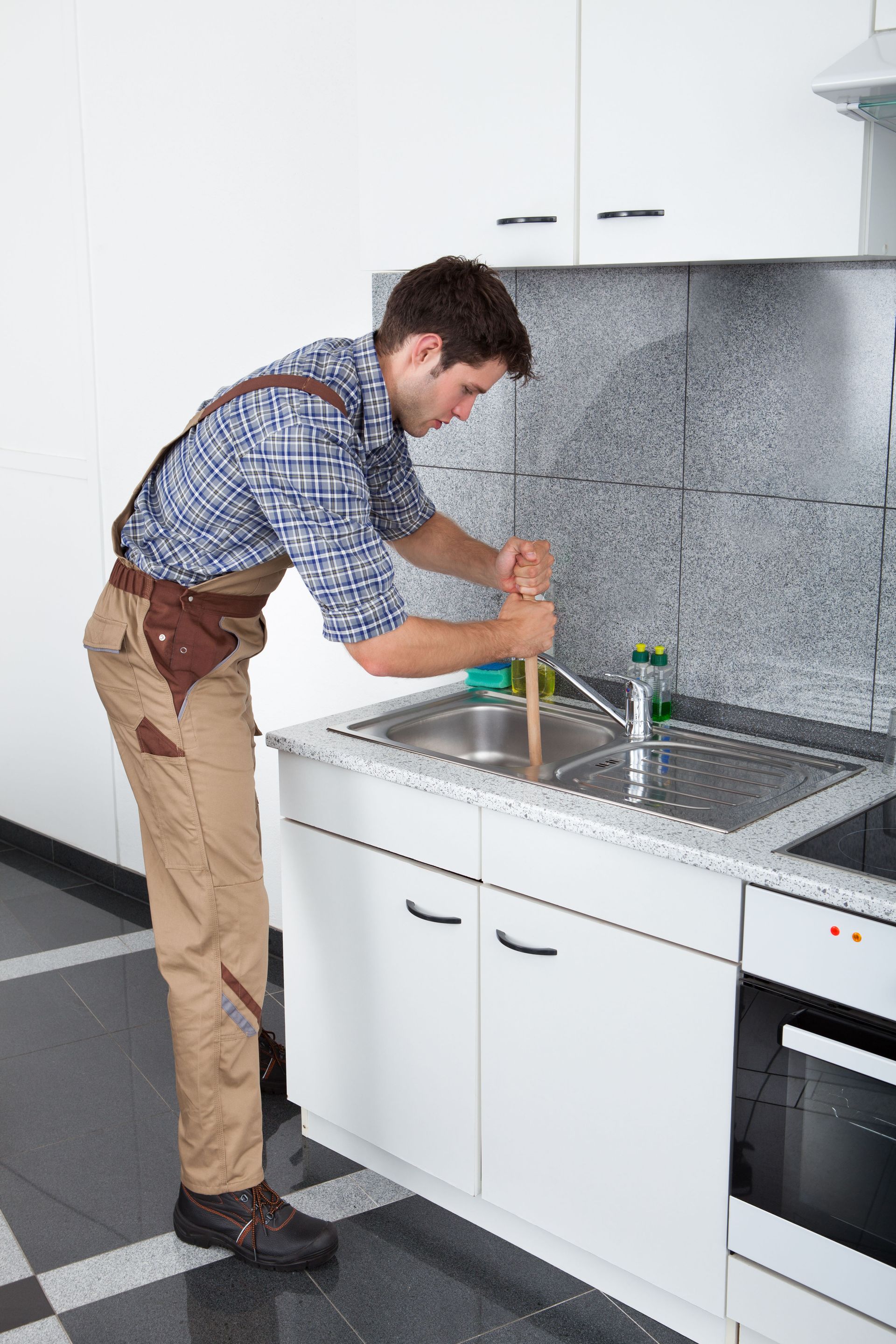November 21, 2025
Water is one of the most essential resources for any business. From running restrooms to maintaining kitchens, cooling systems, and landscaping, water plays a critical role in daily operations. Many commercial properties struggle with inefficient water use that results in higher utility bills, wasted resources, and environmental impact. Proper water management is not just about saving money: it’s about sustainability and creating an operationally efficient facility. This is where a skilled commercial plumber can make a tangible difference.
Commercial plumbing contractors are trained to identify inefficiencies, implement solutions, and provide ongoing maintenance that ensures water systems operate at peak performance. By leveraging their expertise, businesses can reduce wastage, prevent costly repairs, and promote a greener footprint. Whether you manage a restaurant, office building, hotel, or manufacturing facility, optimizing water use is a proactive investment in your bottom line and environmental responsibility.
1. Conduct Comprehensive Water Audits
One of the most effective ways to optimize water use is through a thorough water audit. A commercial plumber can assess your building’s water systems, pinpoint areas of excessive consumption, and recommend actionable improvements. This process often includes evaluating piping infrastructure, fixtures, irrigation systems, and water-using appliances. By understanding exactly how water flows through your property, you can identify both minor leaks and major inefficiencies that may have gone unnoticed.
Water audits also help in tracking water usage patterns over time. With accurate data, businesses can adjust operations to reduce unnecessary water consumption during peak hours or in rarely used areas. For example, a restaurant may discover that kitchen pre-rinse sprays are consuming far more water than necessary, or an office building might find that older toilets are responsible for a significant portion of daily water use. A commercial plumbing contractor can recommend modern, high-efficiency replacements for these fixtures, ensuring long-term savings.
Finally, conducting a water audit lays the groundwork for a structured maintenance plan. Once the issues are identified, plumbers can prioritize repairs, upgrades, and monitoring systems that will continually optimize water use. Over time, these improvements can significantly reduce water bills and prevent unexpected downtime caused by water system failures.
2. Install Water-Efficient Fixtures
Upgrading to water-efficient fixtures is one of the simplest yet most impactful steps a plumbing contractor can take to conserve water. Toilets, faucets, showerheads, and urinals now come in low-flow models that maintain performance while using significantly less water. Replacing older, inefficient fixtures with modern alternatives not only reduces consumption but can also improve hygiene and user experience.
For example, dual-flush toilets give users the option of using less water for liquid waste, which dramatically reduces the amount of water wasted each day. Similarly, sensor-activated faucets prevent taps from running unnecessarily, ensuring that water flows only when needed. A commercial plumber can evaluate your existing fixtures, recommend the best water-saving models, and install them properly to maximize efficiency.
According to IBISWorld, the revenue of the U.S. plumbing industry is projected to total $169.8 billion by the end of 2025. This reflects the growing demand for professional plumbing services and underscores how businesses increasingly recognize the value of investing in water-efficient solutions. As more companies adopt these measures, the environmental benefits multiply, creating a more sustainable commercial landscape.
3. Maintain and Upgrade Piping Systems
A significant source of water waste in commercial properties comes from outdated or poorly maintained piping systems. Leaks, corrosion, and blockages can go unnoticed for months, leading to water loss and higher utility bills. Commercial plumbing contractors are skilled at inspecting and maintaining pipes to ensure they operate efficiently. Regular maintenance prevents minor issues from becoming major, costly problems.
Upgrading piping systems is also essential for long-term water optimization. Modern piping materials are less prone to leaks and provide better flow management. For example, replacing old galvanized pipes can reduce friction and improve water pressure, which ultimately decreases water waste. A commercial plumber can design and implement these upgrades strategically, ensuring minimal disruption to daily operations.
Maintaining pipes isn’t just about preventing leaks. Regular inspections allow plumbers to identify hidden issues such as mineral buildup, which can restrict flow and reduce the efficiency of water-using appliances. By proactively addressing these concerns, businesses can extend the lifespan of their systems and achieve a more consistent, reliable water supply.
4. Prioritize Regular Drain Cleaning and Maintenance
Clogged or poorly maintained drains can significantly impact water efficiency in commercial properties. Over time, debris, grease, and mineral buildup can restrict water flow, causing slow drainage, backups, and unnecessary water waste. Professional plumbers can perform routine drain cleaning and maintenance, ensuring that all pipes and drainage systems function smoothly and efficiently.
Regular maintenance not only prevents water waste but also reduces the risk of costly emergency repairs. For example, a blocked kitchen drain in a restaurant or a slow-draining restroom in an office building can disrupt operations and increase water usage as employees attempt to compensate. By keeping drains clear, a commercial plumber helps maintain consistent water flow, which improves overall system efficiency and reduces strain on plumbing infrastructure.
Commercial properties with complex drainage systems, such as hotels, hospitals, or manufacturing facilities, benefit greatly from a proactive approach. Routine inspections and cleaning allow plumbers to identify potential problems before they escalate, extend the lifespan of plumbing systems, and ensure compliance with local regulations. Prioritizing drain maintenance is a simple yet powerful step toward optimizing water use and protecting your investment.
5. Ensure Proper Functioning of Sewer Lines
A well-functioning sewer system is critical for maintaining water efficiency and overall plumbing health in commercial properties. Blocked or damaged sewer lines can lead to backups, slow drainage, and even property damage, all of which waste water and disrupt daily operations. Professional plumbers provide comprehensive sewer line services, including inspection, cleaning, and repair, to keep these essential systems running smoothly.
Regular sewer line maintenance can prevent minor issues from escalating into costly emergencies. For instance, grease buildup in a restaurant’s sewer line or root intrusion in an office building’s underground pipes can cause significant backups if left unaddressed. By scheduling routine inspections and preventative cleaning, a commercial plumber ensures consistent flow, minimizes water waste, and reduces the risk of operational disruptions.
Advanced sewer line services may also include video camera inspections, trenchless repairs, and hydro-jetting to remove stubborn blockages. These solutions allow plumbers to diagnose problems accurately and implement targeted fixes with minimal disruption to your business. By proactively maintaining sewer lines, companies protect their infrastructure, extend the lifespan of plumbing systems, and improve overall water management efficiency.
Optimizing water use in commercial properties is no longer just a matter of cost savings: it's a strategic imperative for operational efficiency and environmental responsibility. By leveraging the expertise of a commercial plumber, businesses can identify sources of water waste, install efficient fixtures, and maintain piping, drain, and sewer systems. These measures not only reduce water waste but also enhance reliability, prevent costly damage, and support long-term sustainability goals.
As the demand for professional plumbing services continues to grow, businesses are increasingly recognizing the value of investing in water optimization. Whether you manage a small office or a large industrial facility, the guidance and skills of an experienced plumbing contractor can help you make smarter decisions about water use.
When you need a reliable commercial plumber to protect your business and optimize water use, partner with R & R Plumbing and Salem Rooter Inc. Reach out today to schedule maintenance, upgrades, or drain inspections tailored to your facility’s needs.





